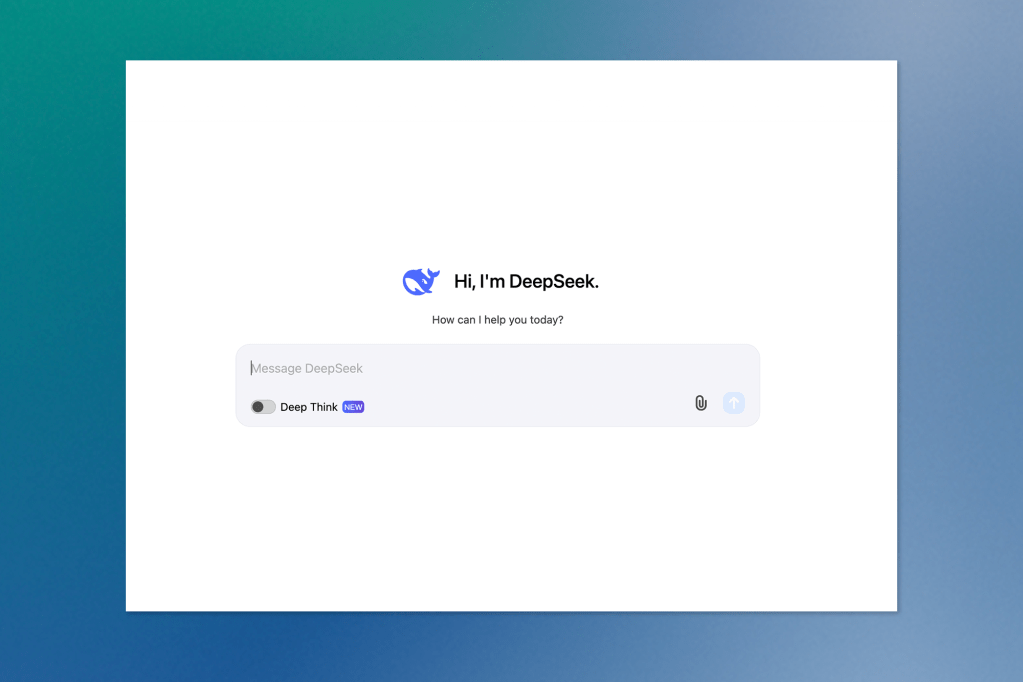Welcome to another exciting edition of AI This Week! This issue starts with DeepSeek’s new reasoning AI model, a direct competitor to OpenAI. Then, we explore Rabbit’s innovative ‘teach mode’ that personalizes AI device training. Lightning AI is also in the spotlight, having secured funding to simplify AI development. Microsoft’s new Recall AI feature promises to boost productivity, while PlayAI introduces voice cloning technology, raising ethical questions. Additionally, don’t miss our tool highlight on Sendspark, which is revolutionizing video prospecting with AI customization. Read on for further details on these advancements.
DeepSeek Unveils Reasoning Model to Rival OpenAI
DeepSeek, a company backed by the innovative minds at High-Flyer Capital Management, recently unveiled its latest creation: DeepSeek-R1. This new “reasoning” AI model is designed to compete head-to-head with OpenAI’s o1, offering a fresh approach to how machines process and reason through information. Unlike typical AI models, DeepSeek-R1 emphasizes enhanced reasoning capabilities, allowing it to spend more time analyzing and processing queries.

The model operates by carefully planning and executing a series of actions to deduce answers, mirroring the thought process found in human reasoning. This method can be time-consuming, with the model taking up to tens of seconds to respond depending on the complexity of the task.
DeepSeek-R1’s performance has been noteworthy, matching OpenAI’s o1-preview on stringent AI benchmarks like AIME and MATH. However, it’s not without its flaws. The model has shown weaknesses in specific logic problems, such as tic-tac-toe, similar to issues seen with o1. Moreover, its ability to handle sensitive political content has been restricted, likely due to regulatory pressures within China, raising questions about the freedom and limitations of AI development under government oversight.
As DeepSeek plans to open source R1 and release an API, the implications for the AI industry and beyond are profound, marking an exciting chapter in pursuing superintelligent AI systems.
Personal AI Trainers: Rabbit Introduces Teach Mode for the R1
In a bold move to enhance user interactivity with AI devices, Rabbit has introduced a new ‘teach mode’ for its R1 gadgets, revolutionizing the way we think about personal technology assistance. This innovative feature allows users to train their R1 devices to perform specific tasks ranging from saving a favourite song on Spotify to drafting social media posts.
Users must access the Rabbithole, the dedicated web interface for R1 management, to utilize the teach mode. Here, they can create a ‘lesson’ by clearly describing and demonstrating the task they want the AI to learn. This hands-on approach enables the AI agent to understand and replicate the actions based on the user’s instructions. Once the lesson is complete, the AI can recall and perform the task independently, although Rabbit notes that this feature is still experimental and might produce varying results.

Despite its straightforward methodology, teach mode faces certain technical hurdles, particularly with websites that deploy CAPTCHAs, which have previously hindered R1’s ability to connect seamlessly with some platforms.
This latest update follows closely on the heels of other significant enhancements to the R1 device, including introducing a large action model (LAM) that navigates websites autonomously and allowing users to customize the gadget’s interface using AI-generated prompts.
Lightning AI’s Mission to Simplify Complex AI Tasks
Lightning AI, spearheaded by PyTorch Lightning creator William Falcon, aims to simplify AI management with its latest $50 million funding boost. The company builds on the PyTorch Lightning framework, which simplifies AI development by abstracting complex setup processes, allowing developers to focus on leveraging their unique data and expertise.
The company’s primary offering, AI Studios, provides flexible tools for fine-tuning and deploying AI models across various cloud environments, including private and on-premises setups. This approach democratizes advanced AI capabilities with a pay-as-you-go model, offering significant free resources to get started.
Lightning AI’s technology underpins major projects like Nvidia’s NeMo and Stability AI’s Stable Diffusion, serving over 230,000 developers and 3,200 organizations.
With its recent funding, Lightning AI plans to expand its reach and streamline AI deployment, aiming to make high-tech AI tools as accessible and straightforward as using a smartphone.
Microsoft Unveils Recall AI for Copilot Plus PCs
Microsoft has launched the first preview of its innovative Recall AI feature, available exclusively to Windows Insiders in the Dev Channel with Qualcomm-powered Copilot Plus PCs. This new feature, which echoes Google’s Circle to Search, allows users to capture and search through past activities on their devices using a visually-driven timeline and natural language queries.
Recall AI enhances productivity by keeping a visual record of nearly all actions performed on the device, from browsing history to document editing. Users can easily navigate through this timeline to retrieve past information or revisit previous tasks. The AI-powered search within Recall efficiently matches text and visual data, offering a seamless way to access past snapshots.

Privacy and security are paramount with Recall AI. The feature is opt-in, ensuring users have complete control over the activation. Microsoft has implemented robust security measures, including local encryption of snapshots and strict policies ensuring no data is sent to the cloud or used for training AI models. Furthermore, sensitive information such as passwords and personal IDs is automatically detected and excluded from snapshots.
Additionally, the preview introduces ‘Click to Do,’ a complementary feature that recognizes text and images within snapshots, allowing users to interact directly with their past digital activities. This feature will expand to include more interactive capabilities, such as visual searches on multimedia content through Bing.
Voice Cloning at Your Fingertips: PlayAI’s Pioneering Technology
PlayAI, originally a modest text-to-speech Chrome extension for Medium articles, has evolved into a leading voice interface in the AI space. The company, founded by Hammad Syed and Mahmoud Felfel, now offers a robust platform that allows users to clone voices and integrate high-quality text-to-speech capabilities into their applications.
PlayAI’s technology enables users to adjust voice intonations, cadences, and tenors through a user-friendly dashboard. The platform also features a “playground” where users can experiment with different settings to create polished audio narrations and voice-overs. One of the standout offerings is PlayNote, a tool that can transform multimedia files into podcast-style narrations, engaging debates, or even children’s stories using AI-generated scripts.

However, PlayAI’s voice cloning capability raises significant ethical concerns regarding consent and misuse. The platform requires users to confirm their rights to clone a voice but lacks stringent enforcement mechanisms. This has led to concerns about the potential for scams and the creation of unauthorized deepfakes. Despite these issues, PlayAI claims it has implemented several safeguards, including content filters and quick response measures to misuse, though effectiveness in real-world applications appears varied.
PlayAI’s approach has not been without criticism, especially from voice actors worried about AI replacing their roles and controlling their digital likenesses. Legal frameworks in places like California now require explicit consent and detailed agreements when using digital replicas, adding another layer of complexity to PlayAI’s operations.
Weekly Tool Highlight: Sendspark
In this week’s spotlight, we introduce Sendspark, a video platform highly praised for revolutionizing video prospecting and enhancing sales outreach. With an impressive 4.8 out of 5 stars rating on G2 across 350 reviews, Sendspark has proven to be a robust tool for personalized video communications.

Core Features of Sendspark
– AI Customization: Record one video and let Sendspark adapt it for each prospect, inserting personalized details like names and custom backgrounds.
– Effortless Integration: Easily add contacts through various method, including CSV, CRM, or API, and incorporate Sendspark videos into your sales and marketing emails.
– Engagement Boosting Tools: Customize videos with unique intros, eye-catching personalized thumbnails, virtual backgrounds and filters to polish your presentation.
– In-depth Analytics: Track viewer engagement with comprehensive analytics that monitor how much of your videos are watched and what actions viewers take afterward.
Versatile Applications
Beyond sales, Sendspark serves multiple roles effectively, from revenue operations and customer success to marketing, agency management, recruitment, and internal communication, proving its versatility across various business functions.
Sendspark empowers businesses to stand out in competitive markets by merging the impact of video with AI’s scalability and personalization capabilities. This tool makes client interactions more engaging and streamlines the video creation process to enhance productivity.
Keep ahead of the curve – join our community today!
Follow us for the latest discoveries, innovations, and discussions that shape the world of artificial intelligence.


